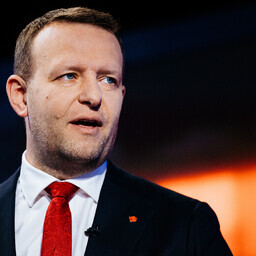1. juulist tõusis Eestis
käibemaks toidukaupadele
24%. See on Euroopa Liidu üks kõrgemaid. 30. juunil algatatud petitsioon tahab
riigikogu
le näidata, et
kõrge maksumäär
teeb ebavõrdsust hullemaks ja raskendab inimeste
toidueelarve
.
käibemaks toidukaupadele
Tõlge fraasile: käibemaks toidukaupadele
EN
VAT on food products
riigikogu
Tõlge fraasile: riigikogu
EN
parliament
kõrge maksumäär
Tõlge fraasile: kõrge maksumäär
EN
high tax rate
toidueelarve
Tõlge fraasile: toidueelarve
EN
food budget
Petitsiooni algatas toidublogija ja MasterChef Eesti võitja Jana Guzanova. See on üks enim allkirju saanud
rahvaalgatus
i. Rohkem allkirju on antud ainult
automaksu vastu
, seda tegi 65 565 inimest. Käibemaksu tõusu vastu võidakse anda veel rohkem allkirju kui kuu aega, kuni 11. augusti keskööni.
rahvaalgatus
Tõlge fraasile: rahvaalgatus
EN
people's initiative
automaksu vastu
Tõlge fraasile: automaksu vastu
EN
against car tax
Veebilehel antud allkirjad saadetakse
riigikogu
sse, kui neid kogub üle 1000. SDE juht Lauri Läänemets ütleb, et
toiduainete käibemaksu langetus
on vajalik. See aitab inimeste elu paremaks muuta ja toetab
Eesti põllumajandus
t.
riigikogu
Tõlge fraasile: riigikogu
EN
parliament
toiduainete käibemaksu langetus
Tõlge fraasile: toiduainete käibemaksu langetus
EN
reduction of VAT on food
Eesti põllumajandus
Tõlge fraasile: Eesti põllumajandus
EN
Estonian agriculture
Läänemets arvab, et Eesti
toiduhinnad
on liiga kõrged. Käibemaksu langetamine võiks seda muuta. Samas peab olema kindel, et käibemaksu langetus kajastuks poehindades ning kaupmehed ei suurendaks lihtsalt oma kasumit.
toiduhinnad
Tõlge fraasile: toiduhinnad
EN
food prices
Kuigi sotsiaaldemokraadid viisid käibemaksutõusu ellu, ei näe Läänemets vastuolu selle langetamise pooldamises. Ta ütleb, et regionaal- ja põllumajandusministeerium alustas toiduhindade analüüsi eelmisel aastal. See on nüüd peatunud.
Rahandusminister Jürgen Ligi (Reformierakond) ütleb, et toidukaupade käibemaksu ei saa alandada, sest see täidaks kaupmeeste taskuid. Haridus- ja teadusminister Kristina Kallas (Eesti 200) ütleb, et toiduainete käibemaksu ei saa langetada, sest
riigil pole raha
.
riigil pole raha
Tõlge fraasile: riigil pole raha
EN
the state has no money
Starting from July 1st, the VAT on food products in Estonia rose to 24%. This is one of the highest in the European Union. The petition initiated on June 30th aims to show the parliament that the high tax rate exacerbates inequality and makes it harder for people to manage their food budgets.
The petition was started by food blogger and MasterChef Estonia winner Jana Guzanova. It is one of the most signed public initiatives. More signatures were collected only against the car tax, which was signed by 65,565 people. Even more signatures may be collected against the VAT increase within a month, until midnight on August 11th.
The signatures collected on the website will be sent to the parliament if more than 1000 are gathered. The leader of SDE, Lauri Läänemets, says that reducing the VAT on food products is necessary. It will help improve people's lives and support Estonian agriculture.
Läänemets believes that food prices in Estonia are too high. Reducing the VAT could change that. However, it must be ensured that the VAT reduction is reflected in store prices and that merchants do not simply increase their profits.
Although the Social Democrats implemented the VAT increase, Läänemets sees no contradiction in supporting its reduction. He says that the Ministry of Regional and Agricultural Affairs started analyzing food prices last year. This has now stopped.
Finance Minister Jürgen Ligi (Reform Party) says that the VAT on food products cannot be reduced because it would fill the pockets of merchants. Education and Research Minister Kristina Kallas (Eesti 200) says that the VAT on food products cannot be reduced because the state has no money.

